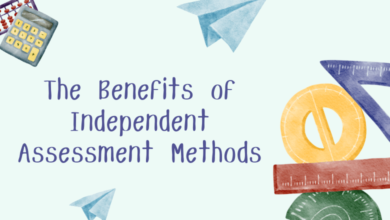The Importance of Civic Engagement at Every Level

When you live in a community, you want to see it thrive. A place to call home that’s safe with economic opportunities and equality for all citizens is ideal. Even though most have the ideas of picture-perfect communities in their heads, these don’t magically appear. It takes the involvement of residents to get there.
Civic engagement, or active participation in one’s community, can take on many forms and happen at multiple levels. Involvement like attending school board meetings, voting in local elections, and getting to know the area’s business owners is critical. Without enough participation and understanding, communities can’t survive or flourish. Get ready to explore why civic engagement is so crucial at every level.
Voting Impacts Public Policy
Voting in every election may not seem like a big deal. So what if you miss filling out your ballot? The only time it matters is when someone’s running for the office of U.S. president, right? Wrong.
Even in a presidential election year like 2024, you’ll notice more at stake on your ballot. There are state, county, and municipal measures. In some cases, there are initiatives about your community’s school district and questions about whether local judges should remain in office. Your vote can determine whether those measures pass, determining public policies for years or decades.
Understanding what’s at stake for your community is easier with online resources like the LA voter guide and Ballotpedia. You’ll get a breakdown of each issue, as well as arguments for and against it. You can go into the voting booth or fill out your mail-in ballot with a greater understanding. Since public policies are the equivalent of corporate business strategies, they’re designed to produce a specific outcome.
However, like business strategies, public policies are rarely perfect. There are potential advantages as well as shortcomings. Knowing how a yes or no vote will impact your community and the lives of its residents helps you make a difference. The ballot initiative could be about improving the city’s water supply or funding road construction with a food sales tax. Voting in all elections is a way to voice your informed opinion while helping beneficial initiatives pass.
Involvement Fosters Community Connection
Compared to other countries, Americans feel less connected to their communities. While 66% of U.S. residents feel very or somewhat close to others, it’s lower than the global median of 83%. Americans are also less likely to feel connected to others in their neighbors. Only 54% perceive a connection to people in the same area compared to 78% of adults worldwide.
It doesn’t take a psychic to know people who feel less connected are less likely to become invested. They may not think getting involved with bettering a community will make much of a difference. When residents feel less connected, they may not establish roots and take time to find out how local decisions are made.
Getting involved with your HOA, PTA, and local public services gives you insight into what factors influence decisions. Instead of getting frustrated about why your backyard’s fence can’t be eight feet tall, you’ll soon know why. You’ll also get the opportunity to present your arguments for changing existing bylaws and introducing new ones. The same goes for getting involved with public service commissions like the teams that run police and fire departments.
You’ll get more out of it than a deeper understanding and appreciation, too. By increasing your involvement, you’ll meet the people behind the decisions. You’ll develop connections with them and other residents who have stepped up. You’ll feel closer to those around you and likely become more invested in seeing everyone benefit from committees’ decisions.
Make Progress on Finding Solutions to Complex Problems
Tackling big issues like climate change, socioeconomic inequalities, and food deserts seems impossible for one person. You’d be correct in assuming one person can’t fix larger problems like these that impact society at large. It will take a concentrated, well-coordinated, collaborative effort to implement effective solutions.
The effects of climate change are an example. Research indicates the consequences are and will continue to be widespread. Rising temperatures and sea levels are only part of the picture. Even if you don’t live in a more vulnerable area like Florida or the southwest, entire systems are under threat. These include food production systems and the insurance industry as disaster recovery becomes more frequent.
Population migrations spurred by climate change are another factor. As some regions become increasingly inhabitable, other less vulnerable areas will experience resource strains. Civic engagement at the federal, state, and municipal levels influences the layers of policies that will either exacerbate or solve the problem.
At the very least, you’ll gain knowledge about what range of control each level of government has and how branches work together. Civic engagement allows you to share your stories about how complex issues have affected your community. Town halls can be an opportune place to express your perspective and learn from others. You can also engage with elected officials and those running for office, asking them to explain their proposed solutions.
The Critical Nature of Civic Engagement
The health of a community depends on the involvement of its residents. Those in charge might make the policies but depend on voter input to design, pass, and implement them. Engagement at every level is how voters can influence policies and the policymakers who make decisions impacting quality of life. Staying silent and disengaging from the process is like giving power of attorney to a stranger. It’s a gamble you and your community can’t afford to take.
Check out our latest insights and resources for more helpful information!






